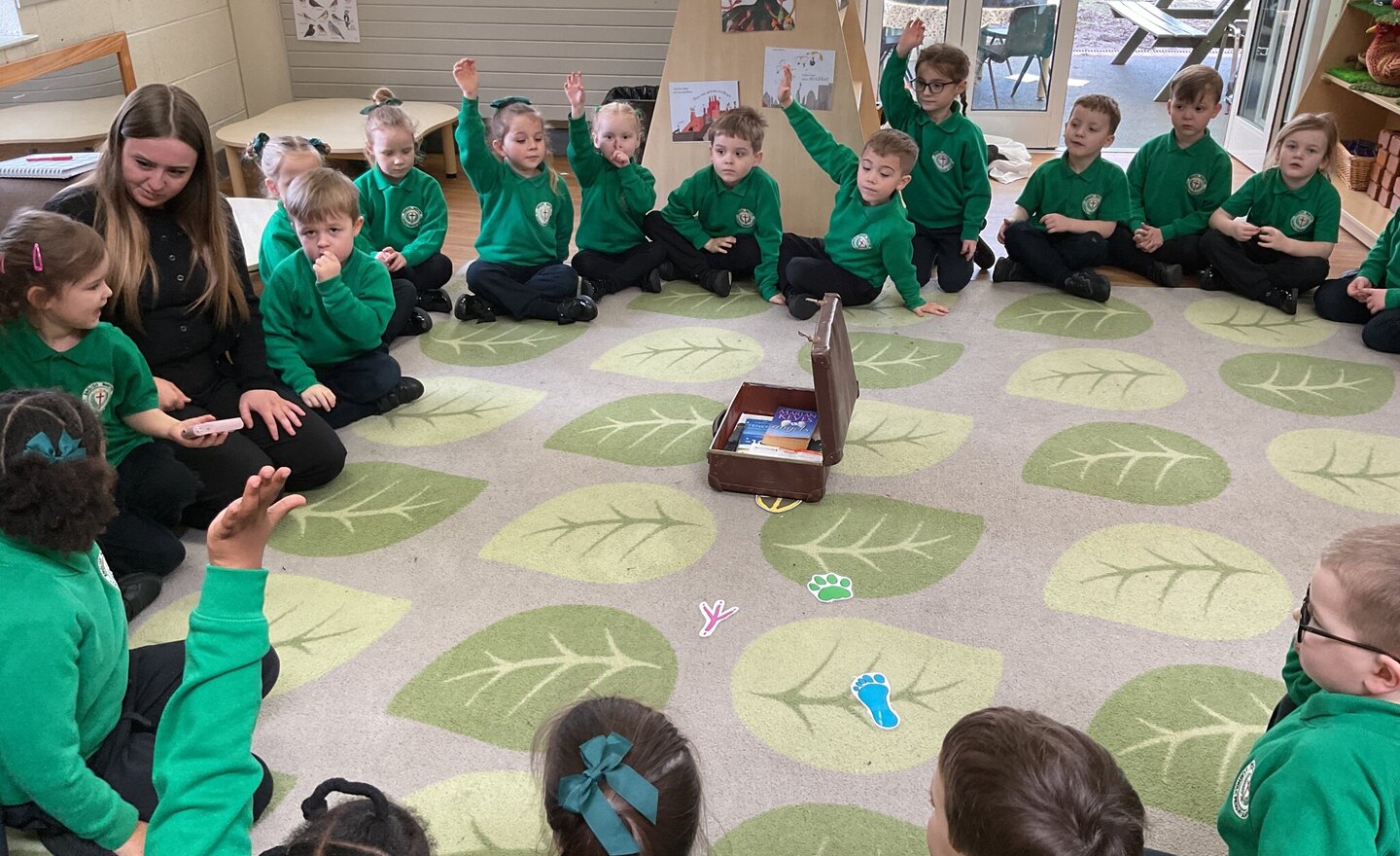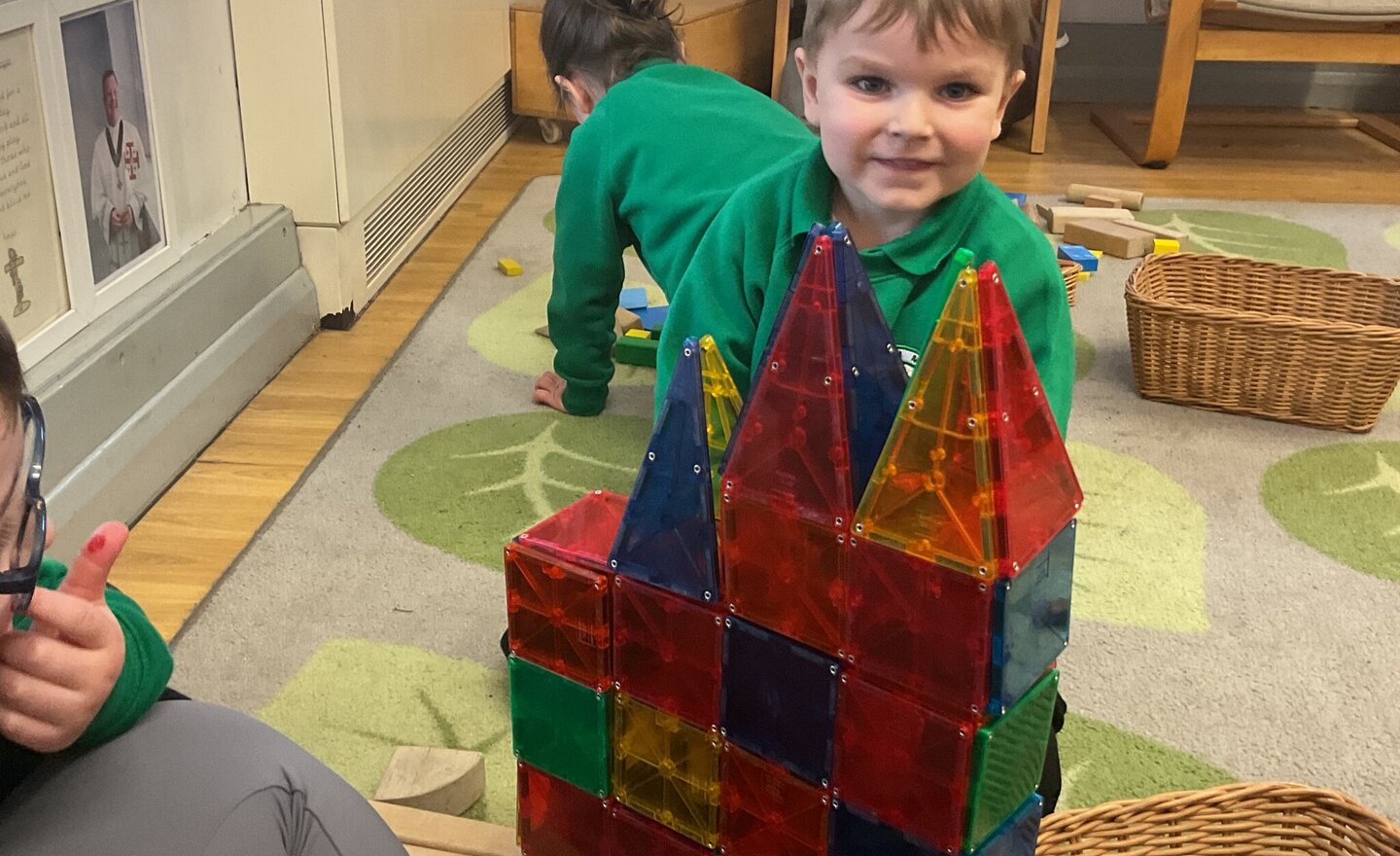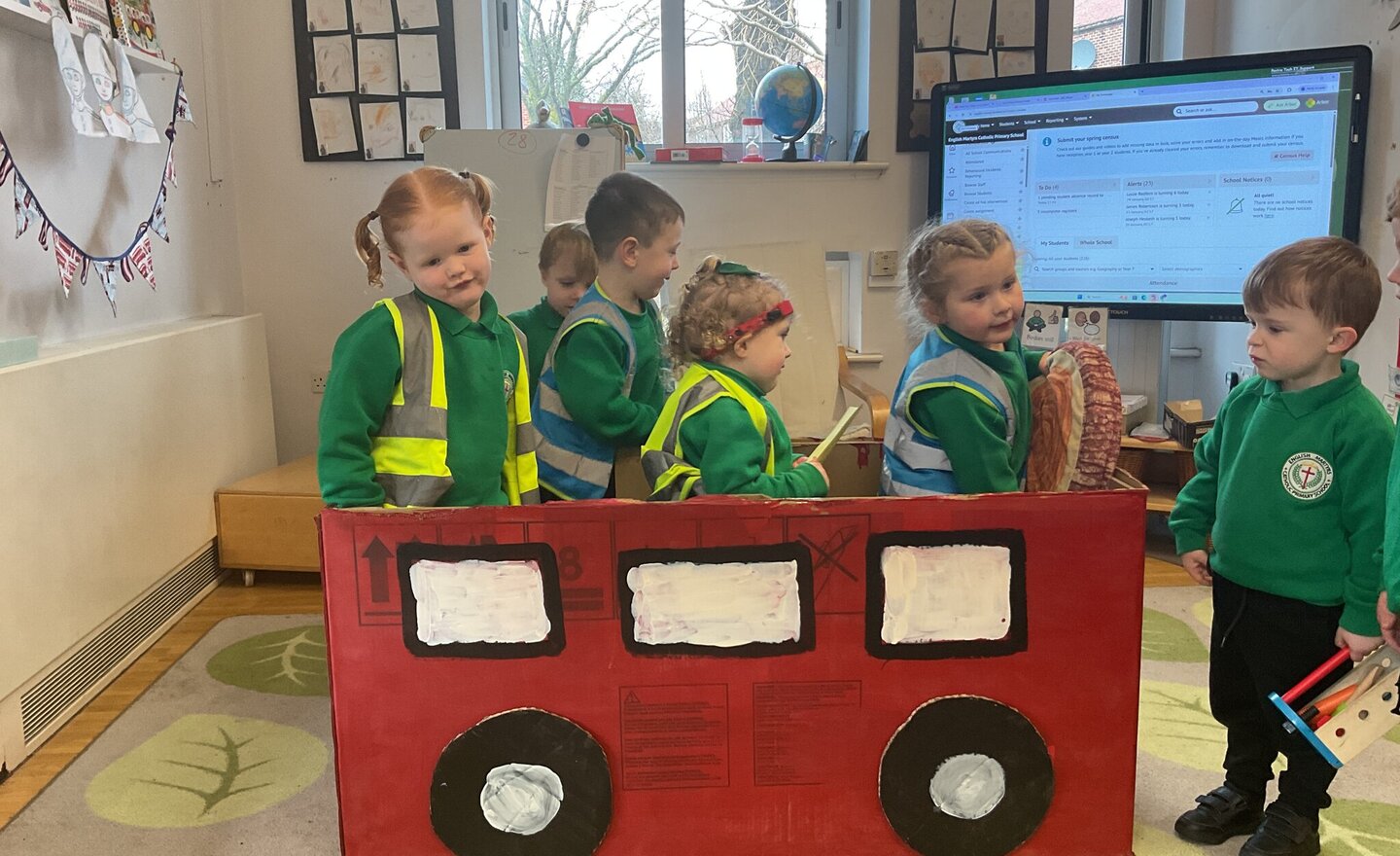"A word is a small magic, a spell that can unlock the world"
- Jane Yolen
Our Goal
At English Martyrs, we strive to ensure that all children leave school fluent in reading, writing, speaking, and listening. We place reading at the heart of our English curriculum to immerse and engage our pupils in a literature-rich environment. We believe reading unlocks children's learning abilities, promotes well-being, and is essential for everyday life now and in the future. Our curriculum is designed to prepare pupils for the next phase of their education using Pathways to Read, Pathways to Write, and Pathways to Poetry, ensuring a progressive approach to teaching English.
How we teach English
We follow a mastery approach to deliver the National Curriculum for English, focusing on spoken language, writing, spelling and grammar, and comprehension through high-quality texts and engaging activities.
Writing:
- Teach purpose, structure, and language features of various genres.
- Use rich reading experiences to model writing.
- Provide regular oracy opportunities to prepare for writing.
- Use teacher demonstrations and guided writing to transition to independent writing.
- Plan extended writing opportunities across the curriculum.
Spelling:
- Teach spelling through Read Write Inc Spelling, focusing on word knowledge and the etymology and morphology of words.
Reading:
- Use Pathways to Read for guided reading from Year 1 to Year 6.
- Emphasize inference skills and model expressive reading.
- Conduct daily phonics lessons for Foundation Stage and KS1, with continued support for KS2.
- Encourage independent reading, reflection, and awareness of reading strategies.
- Provide a variety of high-quality fiction and non-fiction material.
- Monitor progress to inform next steps for learning.
Reading for Pleasure:
- Promote reading for pleasure to improve well-being and empathy.
- Expose children to texts that develop vocabulary and comprehension.
- Use class book corners, reading champions, and end-of-day reading sessions.
- Enrich reading experiences with events like World Book Day, parent workshops, and reading festivals.
Speaking and Listening:
- Build on pupils’ existing knowledge and extend their learning.
- Stimulate interest and vocabulary with enrichment activities.
- Model language using high-quality texts.
- Engage pupils in various speaking and listening activities.
- Identify and support pupils with receptive and/or expressive language difficulties.
Impact
By implementing the above strategies, we aim for all children to:
- Achieve age-related expectations.
- Demonstrate a love of English throughout their lives.
- Read fluently and confidently in any subject.
- Appreciate our rich literary heritage.
- Write clearly, accurately, and coherently for various purposes and audiences.
- Be enthusiastic and proud of their work.
Related Blog Posts
New Book
Our classes found a suitcase with lots of items inside all related to our new book!! The children were really excited to explore what had been left for them and to see their new book. The Journey Home by Emma Levey
Creating using magnetic tiles
Magnetic tiles have been a recent addition to the resources in our nursery and have been extremely popular. It has been fascinating to observe the interactions of the children and the different strategies of exploring and creating used. The resource only arrived last week and building progress…
Bus building, driving and travelling.
Following on from our ‘Naughty Bus’ book the children were keen to make their own bus. We found a sturdy box and the children took over, painting and creating together to get the job done! Next for the driving and travelling. We have also been talking about finding routes as part of our…
.jpg)
.jpg)
.jpg)
.jpg)
.jpg)
.jpg)
.jpg)
.jpg)
.jpg)
.jpg)


